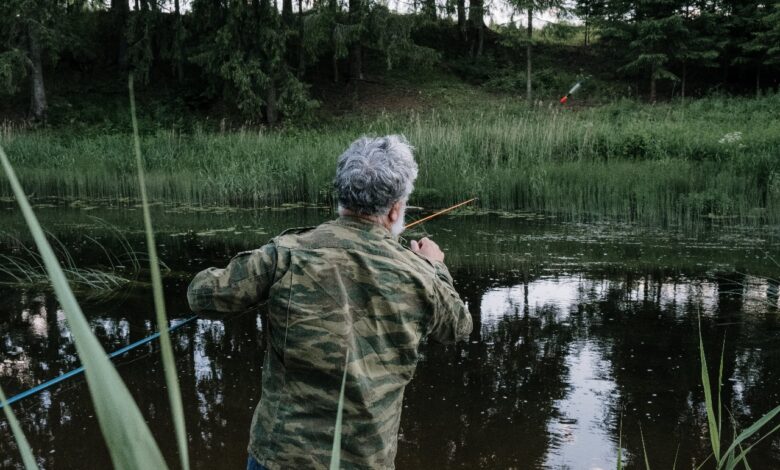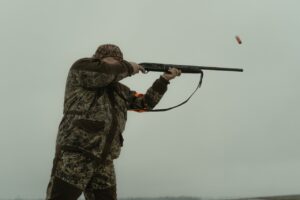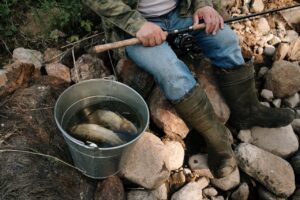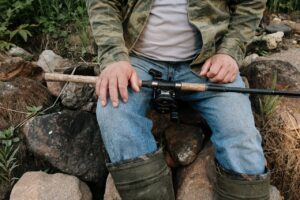Hunting Ethics Examining the Principles

In the field of outdoor pursuits, hunting ethics act as a cornerstone of duty and respect for the community. These unspoken rules offer assistance to seekers to explore their interactions with wildlife, their environment, and one another. They serve as an ethical compass. The basics of chasing morals cover a wide range of themes, from moral chasing to appropriate handling of recreation, and are significant to keeping up the fragile adjustment between people and nature.
The Moral Dilemma

Hunting ethics function as the inspiration for accountable-looking practices and play a crucial role in sustaining our herbal assets for generations to come. These concepts not only sell moral behaviour towards animals and the surroundings but also foster a feeling of camaraderie among hunters, growing a community that values stewardship and conservation. Truthful pursuit, which emphasizes the pursuit of recreation in a fair and good sportsmanship manner, is one of the fundamental values of considering ethics. It means giving the animal a truthful hazard to escape and making use of moral searching strategies in preference to taking advantage of generational or unfair benefits. Another vital issue in search ethics is the recognition of the animals being hunted. This entails using every part of the animal, removing as little as possible, and making sure the animal dies quickly and humanely. It also means putting an end to needless suffering and treating the animal with dignity. As with any ethical code, there will almost always be instances where hunting ethics are put to the test. In those situations, relying on a thorough understanding of those principles and their significance for maintaining the balance between humans and the environment is far from basic. While a few contend that these innovations grow the sport’s effectiveness and enjoyment, others sense they damage the concept of honest competition. Each seeker, in the long run, chooses what they may be comfortable with and guarantees that their developments are standard with their moral ideals. In the time of earlier humans, hunting ethics were essential. It was a necessity that the quarry be not only a source of meals from meat, but also clothes made of skins and tool-making materials made of bones, horns, and hooves. The archaeological evidence of the past and observations from more primitive societies in the present reveal a widespread interest in, and innovation in, the process of hunting. The methods of hunting varied, and changed depending on the characteristics of the landscape, the animals hunted, the ingenuity and ingenuity of the hunter, as well as the tools and technology available. Weapons varied in their complexity as well as effectiveness, in the form of stones and sticks for killing birds, and small game. They also had specially designed clubs and throwing sticks like the African knobkerry, the throwing knives of Upper Nile, and the Australian boomerang, and finally, spears, which ranged from plain pointed sticks to those that had the foreshaft made of barbed material, with sharpened stones, bone, or even metal. Apart from Australia, bows as well as archers were used by all the early hunters and brought back by hunters of the modern era during the 18th century. A blowpipe, also known as a blowpipe (also known as the blowgun), and its poisoned darts are among the most deadly weapons used by hunters. Disguise and camouflage were employed to hide the hunter of the past and also to conceal traps, nooses, pits, snare baits, poisons, and other decoys. The dogs were likely trained to hunt in Neolithic times and then evolved into breeds with special capabilities. The horse evolved to hunt ethics in the second millennium BCE. With the development of agriculture, hunting was less of a source of support, however, hunting ethics were nevertheless pursued to safeguard crops, flocks, or herds, and to hunt for food. Hunting was a continuous training for hunters using the tools, and stalking and tracking played an important role in sustaining the group’s activity, earning the status of a celebrity, as well as preserving the tradition.
The Role of Hunting Ethics

Beyond the act of looking itself and into a seeker’s commitments, hunting ethics also increase. This incorporates being a moral minister for the don, using direction to others, and upholding an advantageous photograph in the eyes of non-hunters. Moreover, seekers must effectively take part in preservation endeavours and take on stewardship roles to make sure that common world populations stay solid and sustainable. This could include volunteering with preservation offices, participating in habitat healing tasks, or being a responsible and aware exterior devotee. In addition, ethical hunting practices, active participation in conservation initiatives, and in-depth knowledge of wildlife and its habitats are requirements for hunters. In this case, looking at ethics is a way of existence that displays our recognition of and information about the natural world, not just a set of guidelines to observe. Hunters can keep taking delight in the hunt for the game even as additionally defensive and maintaining our valuable natural world utilizing adhering to these principles. In the modern universal of hunting ethics, as time progresses and the weights placed on our shared sources increase, the idea of pursuing morality is essential to maintaining judgement of the amusement. As seekers, we must get it and uphold those values to ensure that we hold to delight within the benefit of attempting to discover eras to return. How do hunting ethics relate to natural life preservation? One would be astonished. The concept of sustainable searching carries the reply. Hunting ethics can help keep up energizing populations of diversion creatures and contribute to the, by and large, wellness of biological systems on the off chance that it’s miles wrapped up morally and dependably. By examining licenses, costs, and expenses related to chasing adjustments, chasing also helps to subsidize wildlife management. This cash makes a difference in anti-poaching points, thinking about, and domain recovery, among other one-of-a-kind conservation-associated efforts. There is evidence of the killing of animals with guns in the 15th century. The firearm greatly improved hunters’ ability to take out animals at longer distances as well as in greater quantities, as well as every advancement in the precision, range, and speed of fire also increased the number of kills. The hunters eventually adopted other rules, which were generally not written and sometimes found in the game law, to restrict the weapons they used to kill. The same is true in Great Britain, and in many other countries, like the UK, pumps, also known as repeaters, aren’t considered a weapon for sports. There is nothing more effective if a double-barrelled shotgun is employed, and this weapon requires stopping after each shot to either reload or switch guns, giving the hunter an escape. Although the ability of hunters to kill increased, these rules kept the actual shooting within a reasonable range.
Disputations and Difficulties of Hunting Ethics

The ethical aspect of hunting ethics also aids in the financing of conservation efforts for wildlife through the consideration of permits, costs, as well as fees for hunting equipment. This cash helps the anti-poaching struggle, thinking about, and territory recovery, amongst the one-of-a-kind conservation-associated push. Additionally, ethical hunters are the first to recognize changes in animal behaviour or the inclinations of humans and are therefore essential people in conversations about plant and animal control. They can aid in helping to safeguard our natural resources for future generations by using the following in search of ethics:. Hunting ethics is not a fair policy or a set of rules to follow, but it is an ethical code of conduct that guides the actions of moral hunters. The issue is about more than just animals being hunted by following ethical and responsible hones and acting as good stewards for their natural surroundings. While controversies and challenges could occur, it’s essential to continue to search to find moral hones while presenting an excellent image of the distraction. In doing this, it is possible to ensure that the pursuit remains an enjoyable and economical leisure activity that will last for many years to come, as well as contributing towards the preservation of the world’s natural resources. In this way, it is possible to keep raising the bar of ethics for hunting and make sure that it’s an ethical and sustainable activity. When it comes to fashion, hunting ethics serve as moral guidelines for hunters, steering their actions and decisions towards a responsible, reverent, and sustainable approach to hunting. Every hunter is accountable to these standards and has a positive impact on the protection of our wildlife as well as our natural environment. Therefore, we must all insist on moral and responsible actions, both to protect ourselves as well as for the benefit of hunting and conservation in the future. We should all be a part of the ideals of ethical hunting ethics and make them the core of all hunting. We must always remember to hunt with a sense of morality as well as with an enduring respect for the natural world and its creatures. Let us examine, improve, and promote the principles that are based on morals as a wonderful option to keep this revered style of living for the next generation.


